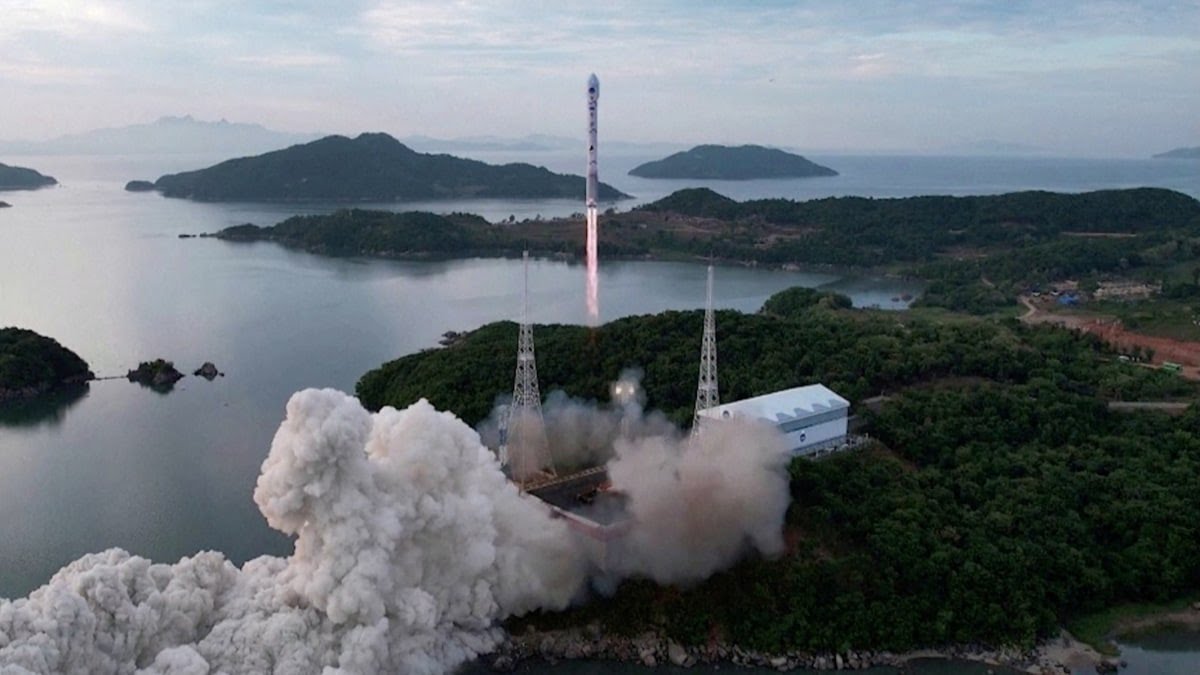N. Korea fails to launch military satellite, to try again

North Korea said Thursday it made an unsuccessful second attempt to launch a military reconnaissance satellite, as the Japanese government condemned Pyongyang for suspected use of ballistic missile technology.
Pyongyang’s state-run media reported the nation is planning a third try in October. The Malligyong-1 satellite was launched on a Chollima-1 “new type” rocket early Thursday but the attempt “failed due to an error in the emergency blasting system during the third-stage flight,” according to the Korean Central News Agency.
The launch came as South Korea and the United States conduct joint military exercises and after a trilateral summit between Tokyo, Washington and Seoul during which their leaders reaffirmed a commitment to jointly deal with the threat posed by North Korea’s nuclear and missile programs.
Japanese Prime Minister Fumio Kishida told reporters that while North Korea’s latest launch was a “failure,” any projectile launch using ballistic missile technology violates U.N. Security Council resolutions.
Tokyo said parts of the North Korean missile may have fallen in the Yellow Sea, the East China Sea and waters east of the Philippines in areas outside those previously announced by North Korea and Japan’s exclusive economic zone.
Speaking at a hastily convened press conference, Japan’s top government spokesman, Chief Cabinet Secretary Hirokazu Matsuno, said the missile was fired from Tongchang-ri at around 3:51 a.m. and is presumed have passed over Okinawa into the Pacific. He said there were no reports of damage after the launch.
Photos taken by Kyodo News from the north-eastern Chinese province of Liaoning showed a projectile rising from the direction of a satellite launch site in North Korea.
The Japanese government issued a J-Alert warning before 4 a.m., urging citizens in Okinawa to seek shelter.
The J-Alert satellite-based system enables authorities to swiftly send alerts regarding natural disasters or attacks on Japan directly to residents via television, radio, smartphone and other devices.
The launch of the projectile took place after North Korea pledged to put a rocket carrying a military reconnaissance satellite into orbit “as soon as possible” following a failed launch in May.
South Korea’s military said North Korea had launched a “space projectile” southward.
Matsuno said North Korea’s missile launches have “seriously threatened” regional security, adding Japan had lodged a stern protest with Pyongyang through its embassy in Beijing.
While Tokyo did not issue a destroy order for the launch, it condemned the action “in the strongest terms,” the spokesman added.
Later Thursday, Japanese Foreign Minister Yoshimasa Hayashi held phone talks with his U.S. and South Korean counterparts, Antony Blinken and Park Jin, during which they agreed to boost their security collaboration to deter any provocations by North Korea, Tokyo said.
On Tuesday, the Japan Coast Guard said it had been notified by Pyongyang of its intention to designate three maritime danger zones in which an object could fall during the launch period between Thursday and Aug. 31.
Two of the designated areas are located to the west of the Korean Peninsula and the third to the east of the Philippines. All three are outside of Japan’s EEZ.
On five previous occasions, North Korea launched a “satellite” within the first three days of a window after informing relevant nations and organizations that it would do so.
After North Korea’s notification in May, Japan’s Self-Defense Forces were ordered to destroy any projectile expected to fall within the country’s territory by ground-based Patriot Advanced Capability-3 interceptor missiles and Aegis-equipped destroyers.
Last Friday, the leaders of Japan, the United States and South Korea agreed during a trilateral summit near Washington to beef up cooperation in opposing North Korea’s rapid development of nuclear and missile capabilities.
The three nations remain on alert for further actions by Pyongyang, including an intercontinental ballistic missile test timed to coincide with large-scale military exercises between Washington and Seoul that began Monday.



